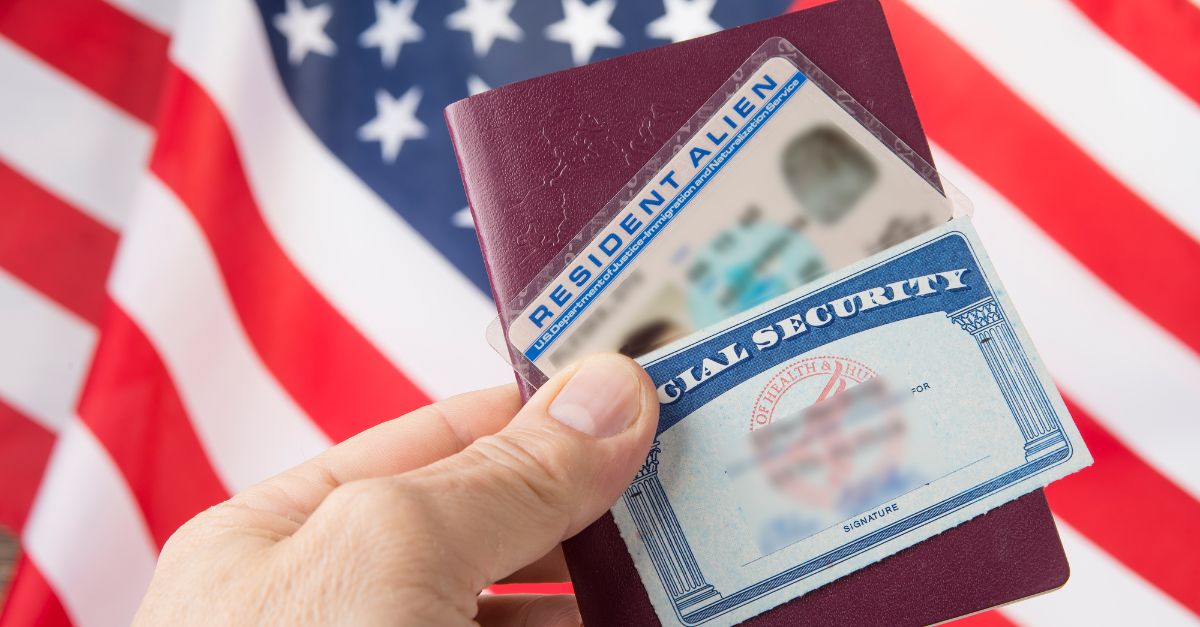What is Document Security?

How often do you share personal documents?
Our guess would be often. Whether you are starting a new position at a company, getting your marriage license, or doing your taxes online – your personal information is being shared, whether physically or through the cloud.
Sharing documents through the cloud can be unnerving, but at the same time so can sharing printed documents. Criminals are using new, advanced technology to commit fraud, and it's getting easier for them to do so. With all of this in mind, how often do we think about document security?
Document security is especially important for businesses and government agencies alike who handle vast amounts of sensitive information daily. These organizations need to prioritize strong measures to protect data integrity and confidentiality now more than ever.
What is Document Security?
Document security involves the implementation of measures to safeguard sensitive information contained in physical and digital documents. This encompasses a range of protective measures such as encryption, access controls, and authentication protocols. As technology evolves, so do the methods and tools available to ensure the confidentiality, integrity, and availability of critical data.
What’s the risk without document security?
Many organizations are transferring their data and documents to the cloud. This enables faster sharing through public and private clouds. It also allows for sharing in on-premises environments. While fast cloud sharing is efficient, it can increase the number of potential users who has access.
In addition to digital document fraud, physical document fraud is coming back. Fraudsters are turning to old tricks like forgery and counterfeiting. People use chemicals or image editing tools like Photoshop to steal and change records. They do this to create fake bank statements, IDs, tax forms, and other documents.
Certain government-issued documents, such as birth certificates, can be very risky if obtained by a criminal. They are like doors to your personal information, used to get into other files, bank accounts, and email accounts.
These types of alterations can be difficult to detect, which goes to show why document fraud rose by 79% in 2022.
With the amount of data and sensitive information that businesses and government agencies produce increasing each year, having robust security measures in place for both physical and digital documents is extremely important.

Common Document Security features
With just a few key document security features, you can protect both your physical and digital documents.
- Watermarking: Watermarks embedded in printed documents serve as a visible deterrent and authentication feature. Customizers can add logos or text to make it challenging for counterfeiters to replicate.
- Tamper-evident features: Adding tamper-evident features to a document provides extra security by showing if it has been tampered with. This can include special inks, holographic elements, or perforations.
- Secure Printing: Secure printing uses encrypted queues and access controls to ensure only authorized personnel can print sensitive documents.
The Importance of Document Security for Businesses and Government Agencies
It's crucial to have document security measures for businesses and government agencies to meet their benchmarks.
- Confidentiality and Trust: Businesses and government agencies often deal with confidential and classified information. Ensuring the confidential data is safe is crucial for maintaining trust with clients, stakeholders, and citizens.
- Compliance Requirements: Many industries are subject to strict regulatory requirements regarding the handling and storage of sensitive information. Non-compliance can lead to severe legal consequences and damage an organization's reputation.
- Intellectual Property Protection: Businesses invest heavily in research and development. Document security is vital to safeguard intellectual property and proprietary information from unauthorized access or theft.
How TROY's document security solutions can help
TROY, a leader in document security solutions, offers innovative products designed to enhance document protection for printed and digital documents.
SecureDocs Sentry: TROY’s SecureDocs Sentry software provides an advanced level of document security through features like serialization, microprinting, barcoding, watermarks and more, on any document. This means birth certificates, bank statements, tax records, academic records, driver’s licenses, etc.
SecureDocs Sentry secures both printed and digital documents. Combining SecureDocs Sentry with TROY’s UV printers and ink, you can print the security that you’ve created for your document, so theft, alteration, and counterfeiting is no longer a worry.
Other TROY document security products:
Fraud-Resistant Toner: For printed documents, TROY's fraud-resistant toner is engineered to resist attempts at alteration or reproduction. This technology adds a layer of defense against fraudulent activities such as chemical alteration by bleeding red a prevalent concern in various sectors.
TROY Security Inks and Toner: Patented security inks and toners add a hidden layer of security to your high-value documents. Make authentication easy and counterfeiting difficult by adding overt and covert layers of security that fluoresce blue with the correct UV verification light.
TROY UV Printers: TROY UV-enhanced HP printers can print the dynamic UV watermarks created in your SecureDocs Sentry template to paper.

The importance of document security cannot be underestimated in today's data-driven landscape. Businesses and government agencies must adopt comprehensive solutions to mitigate risks and protect sensitive information. TROY's commitment to innovation, exemplified by fraud-resistant toner and SecureDocs Sentry software, positions them as a reliable ally in the ongoing battle against data breaches and unauthorized access. Embracing these solutions is not just a proactive measure; it's a strategic investment in the resilience and longevity of any organization.
Related Posts

What is UV Printing? UV Curable Inks for Packaging
Ultraviolet, or UV printing is an advanced digital technology that cures specially designed inks using UV light. This process creates sleek, vibrant designs that dry instantly,..

Here's How to Beat Upcoming Postage Rate Increases
In 2024, a notable increase in postage costs became a reality. With postage increases expected to occur multiple times a year, it's important to be prepared for what's coming.

What is MICR Toner? A Guide for Check Printing
What is MICR? MICR stands for Magentic Ink Character Recognition, and it plays a critical role in check printing. If you're printing checks for your business, you should always be..



Leave a Reply